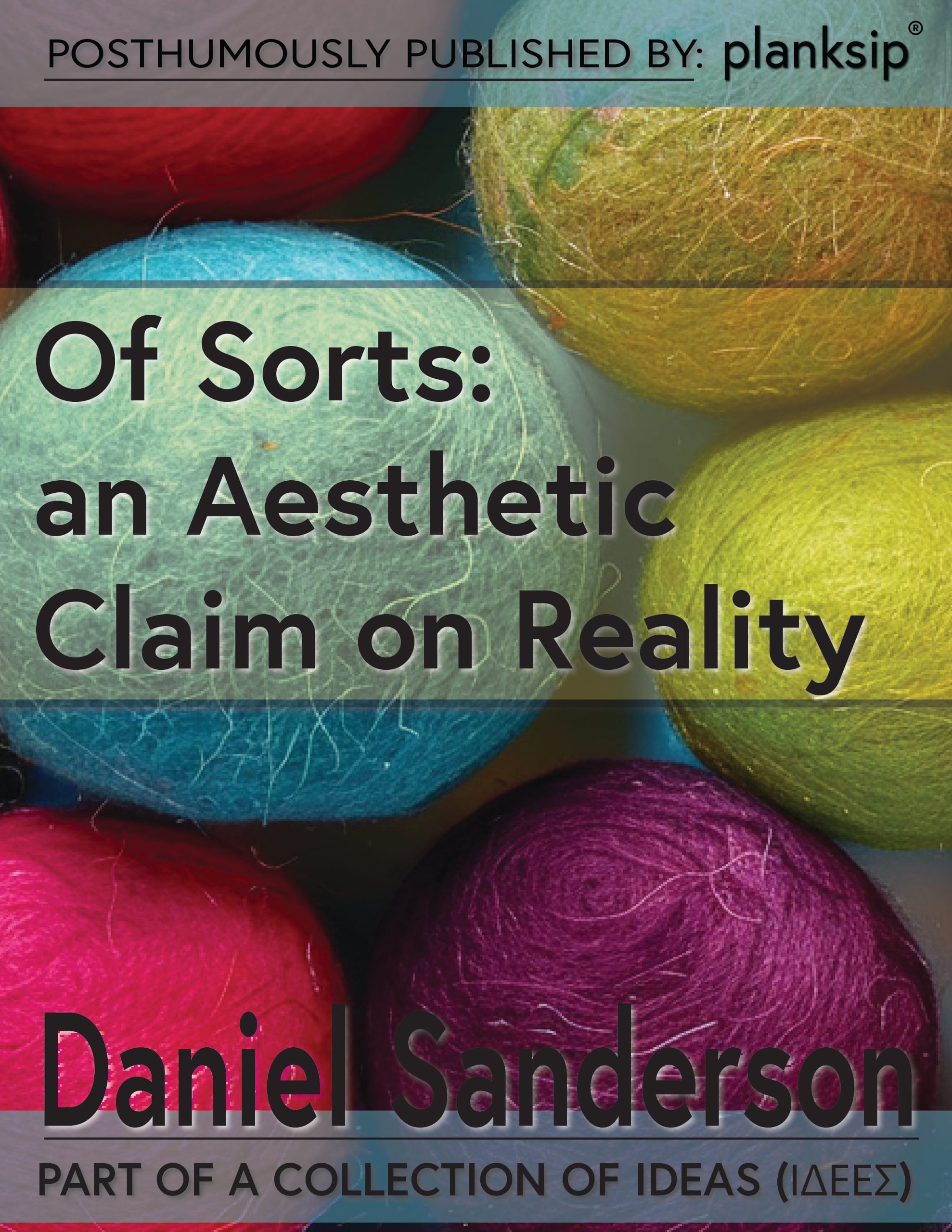Hermeneutic Meme
Defining Hermeneutics, Hermeneutik (German), herméneutique (French), ἑρμηνευτική τέχνη (Greek) and the New Hermeneutic (Robinson)

The reality of "Realism" in a Science-centric society is apparently a step in the right direction, if Consilience (1998) is the desired teleology. The 'wholistic' happenstance emerged from the prehistory of our phylogenetic imagining. Platonically described, the narratives begin in form, yet all forms are not created equally. This is Aristotelean, os sepi to poli.
The moment of inertia, the point [see Horizon Principal] at which we begin, might as well be with Aristotle and his second book De Interpretatione or On Interpretation, is the second text from Aristotle's Organon and is among the earliest surviving philosophical works in the Western tradition to deal with the relationship between language and logic in a comprehensive, explicit, and formal way. Much later, the New Hermeneutics was a partial manifestation of early European Protestant theologians, Heidegger included.

So, we are given a choice, as it Will (Freeman); on the one hand, we defend Plato, and on the other, Aristotle. Judea Pearl soundly refers to spectrums of possible outcomes as counterfactuals in The Book of Why, The New Science of Cause and Effect (2018). These imagined outcomes...
Beginning with the Greek source, I chuckle to my performing self, ἑρμηνευτική τέχνη translates as "interpretive", or "performing arts". Let's come back to this later.
The Greek Mind (with the help of H.D.F. Kitto)
Oddly eusocial, the dichotomy of contrasting pairs (of the whole perspective, not holy perspective) permeated Western Culture and philosophic tradition before the time of Socrates. Yet, aesthetic reasoning and affectual imaginings of beauty versus ugliness, as we know them, originated from the Hellenic mind. Kalos triumphs over aischros in a competition of beauty. By definition, aischros is the antithesis of beauty, and as such, beauty is defined by Kalos. Moving from the ideal conception of beauty into the metaphysics of virtue, it logically follows (according to The Greeks) that other "acts" of virtue now qualify as "of [the] God[s]"; Will[ed] determination or anticipated future reality and assemblage of cultural schemata (σχήματα), or planned forme. Homer equates the beauty of Sparta's women (kalligynaikos) with the virtuous act of dying for one's tribe. It is fascinating to me that predictability from abstractions contained an innate potential for a diversity of meaning equal to infinity yet parsed into reality by the epiphenomenal phenomenology we refer to as the human mind. Greek, as it were, was (and is) a möbius ontological relations, beginning and endings of sometimes eternal recurrence (Nietzsche), Cartesian doubt, Humian humility, Kantian beginnings and theological hermeneutics of Heidegger, et al. With that poetic rambling and Continental sensibility, the nonsense is a NULL hypothesis, the movement towards a p-value of omega (ω), alpha included but limited by the minds of millions, billions, and eventually Infinitus (anthropomorphized God known as infinity). Chaos is the key, and randomness is the replicator, fractal perhaps but only a priori to our collective epistemology, the body growing in complexity and wisdom. So far as Sofia is concerned, the beauty of this virtuous abstraction connects the attractive potentials of future imaginings. There is an aesthetic to this movement, to the outcome anticipated by predicting our future conditions. Thrive, and you will receive. Ask, and you will conceive.
Around 30,000 years ago, the cavernous sanctuaries of Altamira in Spain and Lascaux in France became the canvases for some of humanity’s earliest storytellers. These prehistoric artists employed natural pigments to depict their daily lives and the wildlife surrounding them. The paintings, marked by sophisticated techniques, including the use of perspective and shading, suggest not only an artistic endeavour but also a profound means of communication. Scenes of hunting and rituals, detailed representations of animals, and symbolic markings offer insights into these ancient societies' communal beliefs, practices, and interactions. Through these murals, the artists of Altamira and Lascaux left behind a visual narrative, a silent yet potent testament to their worldview and spiritual life, effectively bridging the temporal chasm that separates us from them.
The incorrect assumption would be that (linguistically) this was foundational of a linguistic replicator. As it turns out, the correct assumption appears to be narrative in nature. Stories were told through the cave art in Altimira and Lascaux 30,000 years ago. I want to explore the thesis that beauty was the impetus behind the Greek invention of proof through abstract reasoning.
Beauty as a Beginning and End (in itself)...
More on this to come.

Of Sorts: an Aesthetic Claim on Reality
Mid-Term Summary — A Long Saturday
In the opening title, I explain my membership (and possible allegiance) to the early existentialists, which I refer to in a bracketed sotto voce as sophistry. In part, because I am being cheeky with my strict, firmly anchored philosophical defence, the litany of autonomic "autonomous" criticism lies ready to pounce. This I know. Self-knowledge and knowledge of the self are not sui generis. Self-help culture or religious recruitment sometimes manipulates subtle inflections and deflections of meaning. The only philosophical claims that I care to make and open up to scrutiny are the following:
Thesis: Aesthetics, originating with the Socratic pivot, was paradigmatic to the tradition of Western Philosophy.
When exactly?
I Kant(yuk!) say moral virtue and consciousness are one and the same. But are they? O sepi to poli. And so the claim goes on. Truth is a mu function, regression towards the mean is revealing in a flock mentality. Sometimes, in black and white, I should appear to contradict myself by claiming the truth as an absolute. Black and white imaginings are binary and sometimes suffice. From correlative recognition to hindsight, wisdom to the deviant behaviours of norm violators, judgement swiftly followed the interpreters of meaning. Hierarchies emerged in forme and biological determination. Environmental outcomes consistently predict the non-existence of contradiction. This isn't saying much, especially since the pathway to the Isle of the Blessed is a life of reflection. Eudaemonica is a place worth visiting. A verb made a noun, a reversal of sorts to return a virtue to its narrative forme.
After Babel, Aspects of Language and Translation and the Hermeneutic Meme
- {Gadamer on Linguistic structures} Whorfian and universalist linguistics..., Six fundamental (structural) types of language according to Johannes Lohmann (link #1, #2, #3), Helmut Gipper, Émile Benveniste and ... I have also downloaded the following PDF; L'Ecriture (de) la Copule, translate it and see what emerges. Also, Jacques Derrida in Marges de la philosophic (Paris, 1972), pp. 214–46.


